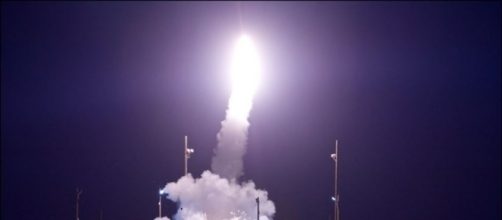In another act of provocation, North Korea fired yet another missile over Japan. According to US Pacific Command, the missile was fired early Friday in an easterly direction, flying over Japan, and landing in the Pacific ocean.
President Donald Trump did not directly comment on the development, but Defense Secretary Jim Mattis called the action by North Korea reckless saying Pyongyang put millions of Japan's population at risk. Mattis also told the Washington Post that the President had been fully briefed on the incident
In response to the missile, South Korea launched its own ballistic missile to show it could reach the North's launch site.
Calls for more sanctions
The latest missile launch by North Korea is seen to be in response to the latest sanctions announced by the UN three days ago.
Secretary of State Rex Tillerson said the sanctions announced by the UN represented the 'floor' and not the 'ceiling' and called on all nations to unite and take new, stronger measures against the North Korean regime.
At the request of US and Japan, the UN Security Council has scheduled an emergency meeting that will discuss the latest event and chart the way forward.
Missile
According to US military officials, the missile launched by North Korea early on Friday was a KN-17 which has a 2,800-mile range. Officials believe the same airport site used during last month's launch was the same one used on this latest missile launch.
More reports say the missile reached a height of 480 miles before flying 2,300 miles out. This is further than its predecessor which reached a height of 340 miles and flew 1,700 miles out.
After last month's launch, North Korea called the action a meaningful prelude to contain the island of Guam which is US controlled territory and is 2,100 miles from North Korea.
North Korea warnings
Before the UN Security Council voted on the sanctions that were imposed on North Korea, the country's Foreign Ministry had issued a statement saying that it would cause the US great suffering and pain if the vote went through.
The sanctions were occasioned by Pyongyang's test believed to be a Hydrogen bomb detonation on September 3rd.
The test caused an artificial earthquake measuring 6.3, which South Korean military officials likened to an explosion four of five times more powerful than the force of the blast in Nagasaki, Japan during the second world war.
Secretary of State Rex Tillerson said the acts of provocation by North Korea would continue to sideline the country diplomatically and economically.


